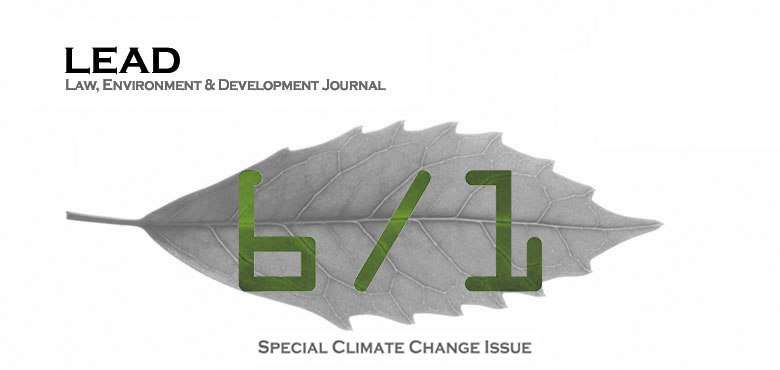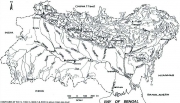Climate Change
Sensitivity analysis of melt runoff due to temperature and precipitation – A research report by National Institute of Hydrology
Posted on 06 Jul, 2010 11:36 PMThe study aims to assess the impacts of various climate scenarios on the hydrological response of the high altitude Spiti river in the Himalayas. The climatic scenarios were constructed on the basis of simulations of the Hamburg coupled atmosphere-ocean climate model for the study region.
Orissa, the first state to draft the Climate Action Plan
Posted on 02 Jul, 2010 04:42 PMOrissa becomes the first state in the country to have earned the distinction of having action plan on climate change. Following the National Action Plan of India started in 2008 the document of Orissa provides the action for the period of 2010-2015 having a budget of 17,000 crore.
Hydrological problems of India – A compilation of news items for the year 1997-98
Posted on 01 Jul, 2010 02:10 PMThis report is a compilation of the hydrological news in the print media in the country for the year 1997-98. The report is an attempt to put forth diverse hydrologic information and events reflecting the problems and indicate solutions for hydrologists, planners and water resource managers in particular. Five national newspapers like Hindustan Times, Indian Express and Hindu etc., have been referred to, for tracking the Indian hydrological events due to flood, drought, quality, demand supply and availability.
Remote sensing and GIS applications in zonation of waterlogging in command areas – A research report by the National Institute of Hydrology
Posted on 21 Jun, 2010 04:48 PMThe study assesses waterlogging in a canal command area in Rohtak and Jhajjhar districts through waterlogging area zonation using multi-spectral and multi-temporal imagery like IRS LISS III data of pre and post monsoon period. Seasonal and permanent waterlogged area and standing water were delineated on the basis of remote sensing data, digital elevation model and groundwater data.
Climate refugees: Implications for India
Posted on 18 Jun, 2010 03:56 PMA widespread view that is gaining ground is that climate related migration could evolve into a global crisis by displacing a large number of people from their homes and forcing them to flee. Christian Aid postulates that a billion people could be permanently displaced by climate change related phenomenon such as droughts, floods and hurricanes (Christian Aid 2007). The fourth assessment report of the Intergovernmental Panel on Climate Change (IPCC) mentioned the “potential for population migration” due to increase in the number of areas affected by droughts and an increase in the intense tropical cyclones activities (IPCC 2007: 18). In particular, it seems likely that significant numbers of people will be displaced, either temporarily or permanently, from their homes as a consequence of global warming (Stern 2006). Available scientific evidences indicate that a large number of people might be displaced due to climate change. However, much of the literature on this issue refers to the question of whether the people forced to migrate as a consequence of climate change should be described as climate refugees. There is no internationally agreed definition of the term “climate refugee” and the extent to which these displaced persons constitute a separate identifiable group. Although it is now widely recognised that climate change will significantly adversely affect India, there are few studies available on how climate change is going to affect the migration of people. It has been asserted that 70,000 people out of the 4.1 million living in the Indian part of the Sundarbans islands would be rendered homeless by 2020 (EPW, 6 June 2009).
Climate policy watch
Posted on 16 Jun, 2010 11:57 PMClimate change has been denied, labelled as a myth and a political manoeuvre or synergised with individual weather events.
Activists from the Climate Revolution dig out climate policy gaps through the Right to Information Act
Posted on 10 Jun, 2010 07:27 AM Content Courtesy: AlertNet
Content Courtesy: AlertNet
Activists from the Climate Revolution initiative in India have discovered a crucial tool in their battle to hold the government accountable on its climate policies: the country's landmark Right to Information (RTI) Act.
Read more about Climate Revolution's work on RTI on their website here.
"We have to accept diversity of knowledge to manage water wisely": Interview with Prof Jayanta Bandyopadhyay on business economics
Posted on 08 Jun, 2010 11:48 AMProf Jayanta Bandyopadhyay, Professor and Head, Centre for Development and Environment Policy, IIM Calcutta, speaks to Bappaditya Chatterjee of Business Economics , on the consequences of global warming and climate change on India's water resources, in the magazine's June 1-15 2010 issue.
LEAD journal special issue on climate change
Posted on 07 Jun, 2010 08:33 AM The Law, Environment and Development Journal published by School of Oriental and African Studies and International Environmental Law Research Centre, has brought out a special issue on Climate Change.
The Law, Environment and Development Journal published by School of Oriental and African Studies and International Environmental Law Research Centre, has brought out a special issue on Climate Change.
Holistic Engineering and Hydro-Diplomacy in the Ganges-Brahmaputra-Meghna Basin - EPW Paper
Posted on 23 May, 2010 04:49 PM This document by Jayanta Bandyopadhyay, highlights the importance of the Ganges-Brahmaputra-Meghna (GBM) basin as an important source of water for many of the countries in South Asia, and the crucial role of negotiations in the context of the impending water crisis threatening the basin with the phenomenon of climate change.
This document by Jayanta Bandyopadhyay, highlights the importance of the Ganges-Brahmaputra-Meghna (GBM) basin as an important source of water for many of the countries in South Asia, and the crucial role of negotiations in the context of the impending water crisis threatening the basin with the phenomenon of climate change.
The document argues that traditional water engineering has been found to be highly reductionistic and ineffective in bringing about development in the GBM basin and the continuing poverty in the GBM basin can be linked to the absence of a holistic ecological perspective, use of an incomplete framework for economics and ignoring of long-run economic costs of the actions proposed.





